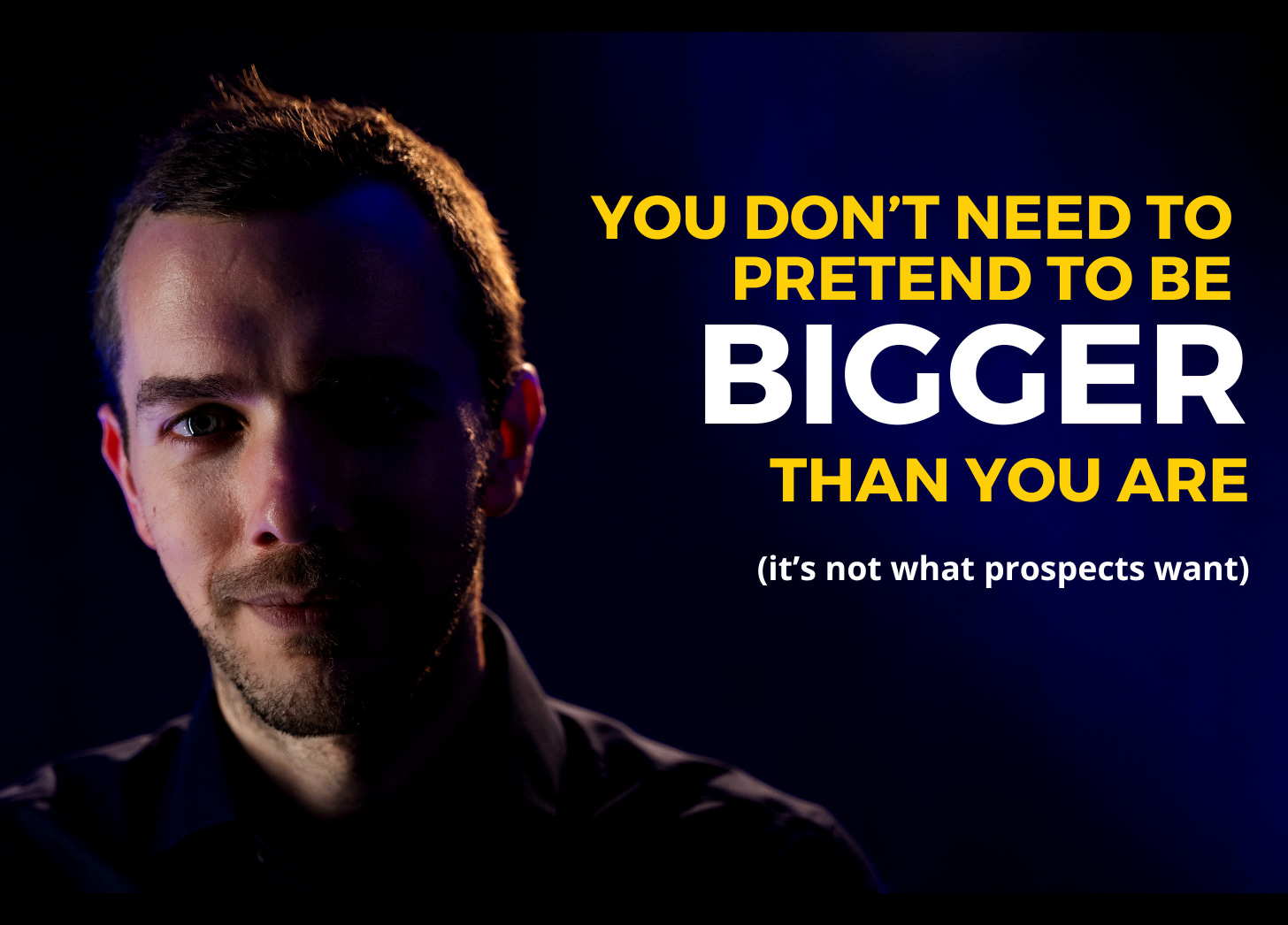Own Your Solo Status: The Real Secret to Attracting High-Value Consulting Clients
You might think it will help you get clients, but it's far more likely to be holding you back from achieving your goals. If you're a solo consultant, could you show it?
Hi, I’m Rich. Welcome to my weekly newsletter where I share systems and frameworks for scaling your consulting practice from $0 to $1m+ in revenue.
You can get 1:1 personal coaching or explore my new course: Proposal Mastery: Learn To Write Winning Business Proposals.
Running A Global Consultancy Group From A Tiny English Village
I used to know a solo consultant who lived in Bishop’s Cleeve, Gloucestershire (the village is exactly as you would imagine it to be).
He offered ‘venture marketing services’ to startup firms (i.e. marketing for payment + equity).
He called his company the [Last Name] Group, always used the first-person plural (we) when discussing his organisation, paid for a Skype number based in London and a London PO address, and listed a New York number and office address on the website.
His website featured stock images of a diverse team working together on problems, presented high success metrics, and gave the impression of a mid-sized boutique consultancy specialising in …



